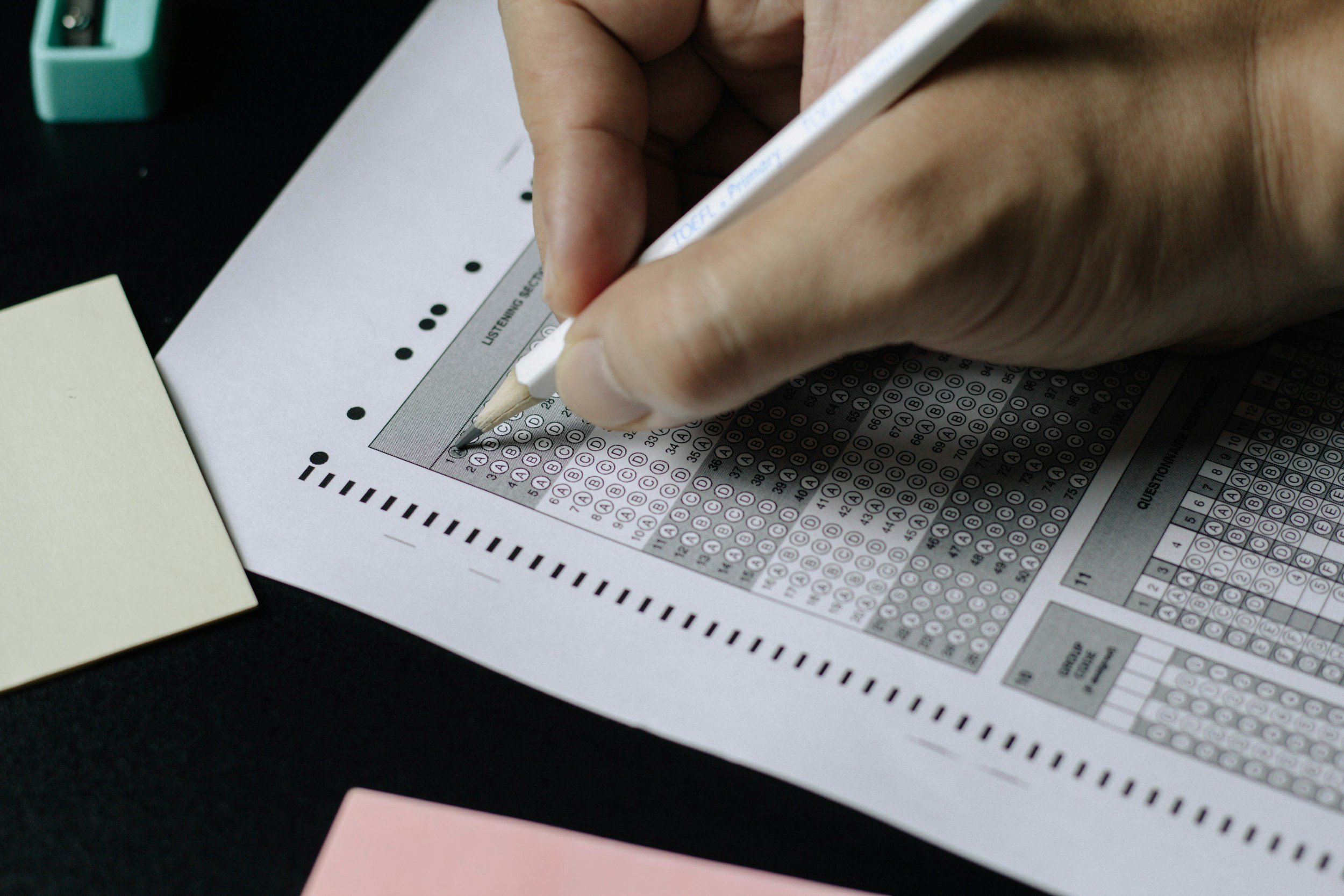Understanding the PSAT and Why it is Important - A Comprehensive Guide
By: Chris Jonas
College Admissions Coach
Prefer to listen to this post? Click below.
Understanding the PSAT: A Comprehensive Guide
The Preliminary SAT (PSAT), or the National Merit Scholarship Qualifying Test (NMSQT), is a standardized test often taken by high school sophomores and juniors in the United States. While some view it as merely a practice test for the SAT, the PSAT serves several critical functions that can impact your college journey and beyond. So, let's tackle many students' and parents' questions about this test.
What is the PSAT, and Should You Take It?
The PSAT is a standardized test that assesses your Math, Reading, and Writing skills. It is a shortened version of the SAT and usually serves as a preliminary step for students who intend to take the SAT later. But should you take it?
The answer is, generally, yes. The PSAT is an excellent diagnostic tool to evaluate your academic strengths and weaknesses before the SAT. Moreover, it determines eligibility for the National Merit Scholarship, which can lead to substantial financial aid.
If you're a first- or second-year high school student considering the PSAT, you might want to consult 24/7 Teach's Freshman and Sophomore College Counseling for expert advice tailored to your needs.
How Does the PSAT Affect College Acceptance and Scholarships?
While the PSAT is not used for college admissions, the skills you gain and the scores you achieve can influence your SAT performance, a crucial element in your college application. Additionally, doing well on the PSAT can make you eligible for the National Merit Scholarship, a prestigious award many colleges value. This scholarship can offset tuition costs and make your application stand out in a competitive field.
To further enhance your test-taking skills, consider enrolling in 24/7 Teach's Test Prep Services, which can offer a comprehensive roadmap for PSAT success.
How Long Should You Study for the PSAT?
The amount of time you should dedicate to PSAT preparation depends on your existing academic skills and the goals you hope to achieve. A general recommendation is to begin at least three to six months before the test date. Consistent practice can help you identify weaknesses, improve your skills, and build confidence.
In Which Grade Should You Start Studying for the PSAT?
Though high school sophomores and juniors often take the PSAT, there's no harm in starting your preparation even earlier. First-year students with a solid academic foundation can begin familiarizing themselves with the test format and types of questions. This early start can give you an advantage, providing more time to improve and adapt your strategies.
Is the PSAT Very Hard?
The PSAT's difficulty level is relative to your preparedness and prior academic background. It is designed to test skills you should have acquired by your sophomore or junior year in high school. While you may find some sections more challenging than others, remember that the PSAT is, at its core, a practice test. Its primary purpose is to help you gauge where you stand academically.
Is an 800 PSAT Score Good?
The highest possible score on the PSAT is 1520, so an 800 would be below the median. While it's not an awful score, it indicates room for improvement, especially if you aim for competitive colleges or scholarships. Use the score as constructive feedback to guide your future preparation.
In conclusion, the PSAT is a vital tool in your academic arsenal. It serves not only as practice for the SAT but also as a gateway to potential scholarships and a gauge of your academic skills. You can make the most of this opportunity with thoughtful preparation, including utilizing resources like 24/7 Teach's Freshman and Sophomore College Counseling and Test Prep Services.
Effective Strategies for PSAT Preparation
Studying for the PSAT effectively is about more than just cramming information. It's about understanding your strengths and weaknesses and employing strategies that are tailored to you. Here are some tips for adequate PSAT preparation:
Start Early
It's generally recommended that students begin their preparation at least three to six months before the PSAT. However, there's no downside to starting earlier, especially if you're aiming for a National Merit Scholarship or want to maximize your SAT score later on.
Diagnostic Tests
One of the best ways to understand your current academic standing is to take a diagnostic test. Many test prep services offer these, but you can also find free versions online. Use the results to identify the areas where you need the most improvement.
Customized Study Plan
Once you've identified your weaknesses, create a study plan that addresses them. This plan can include a mix of self-study, guided tutorials, and mock tests. Consider using 24/7 Teach's Test Prep Services for a comprehensive, structured approach to your preparation.
Consistent Practice
Consistency is key when preparing for the PSAT. Studying for an hour each day is better than cramming eight hours in a single session. Consistent study habits help you retain information and skills more effectively.
Time Management
During the test, each minute is precious. Practice answering questions under timed conditions to get a feel for the pace of the test. Learning how to manage your time during the PSAT can also translate into better time management skills for the SAT and your academic life.
Take Mock Tests
Regularly taking full-length practice tests helps you gauge your progress, adapt your strategies, and get accustomed to the test's format. Review your answers critically to understand not just what you got wrong but why you got it wrong.
Seek Professional Guidance
While self-study is essential, sometimes you need an expert's touch to guide you. 24/7 Teach's Test Prep Services can provide personalized coaching that aligns with your academic needs and goals.
The Game-Changing Power of the PSAT: A Personal Experience
My PSAT experience forever changed my life. Taking the test in my sophomore year of high school, I scored exceptionally well, making me eligible for the National Merit Scholarship. My diligent preparation paid off not just in a high score but in the form of a full scholarship to my dream college, which I was awarded in my junior year. This scholarship has enabled me to pursue my academic dreams without the burden of financial stress and has given me a sense of achievement and confidence that continues to shape my life.
In conclusion, the PSAT is not just a practice test; it's an opportunity. With the right resources and strategic preparation, such as those offered by 24/7 Teach, you can unlock doors to scholarships, college acceptances, and a bright future. So start preparing now, and who knows? You might find yourself with a life-changing scholarship, like I did.
Discussion Question:
Join the conversation and participate with the 24/7 College Admissions community by answering the DQ in the comment section below:
What unique strategies have you employed in your PSAT preparation, and how have they impacted your academic journey so far?
Did you know the earlier you start the college application process, the easier it is? If you are ready to start thinking about the college application process, set up a free strategy call with one of our 24/7 College Admissions specialists and learn everything you need to create a successful college application plan for yourself or your teen.












